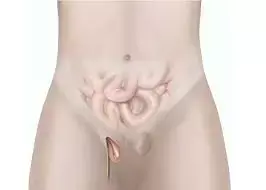- Home
- Medical news & Guidelines
- Anesthesiology
- Cardiology and CTVS
- Critical Care
- Dentistry
- Dermatology
- Diabetes and Endocrinology
- ENT
- Gastroenterology
- Medicine
- Nephrology
- Neurology
- Obstretics-Gynaecology
- Oncology
- Ophthalmology
- Orthopaedics
- Pediatrics-Neonatology
- Psychiatry
- Pulmonology
- Radiology
- Surgery
- Urology
- Laboratory Medicine
- Diet
- Nursing
- Paramedical
- Physiotherapy
- Health news
- Fact Check
- Bone Health Fact Check
- Brain Health Fact Check
- Cancer Related Fact Check
- Child Care Fact Check
- Dental and oral health fact check
- Diabetes and metabolic health fact check
- Diet and Nutrition Fact Check
- Eye and ENT Care Fact Check
- Fitness fact check
- Gut health fact check
- Heart health fact check
- Kidney health fact check
- Medical education fact check
- Men's health fact check
- Respiratory fact check
- Skin and hair care fact check
- Vaccine and Immunization fact check
- Women's health fact check
- AYUSH
- State News
- Andaman and Nicobar Islands
- Andhra Pradesh
- Arunachal Pradesh
- Assam
- Bihar
- Chandigarh
- Chattisgarh
- Dadra and Nagar Haveli
- Daman and Diu
- Delhi
- Goa
- Gujarat
- Haryana
- Himachal Pradesh
- Jammu & Kashmir
- Jharkhand
- Karnataka
- Kerala
- Ladakh
- Lakshadweep
- Madhya Pradesh
- Maharashtra
- Manipur
- Meghalaya
- Mizoram
- Nagaland
- Odisha
- Puducherry
- Punjab
- Rajasthan
- Sikkim
- Tamil Nadu
- Telangana
- Tripura
- Uttar Pradesh
- Uttrakhand
- West Bengal
- Medical Education
- Industry
Intraoperative Catheter not useful for Urinary Retention After Hernia Repair: study

Intraoperative Catheter not useful for Urinary Retention After Hernia Repair according to a recent study published in the JAMA Surgery
Urinary catheters are commonly placed during laparoscopic inguinal hernia repair as presumed protection against postoperative urinary retention (PUR), one of the most common complications following this operation. Data from randomized clinical trials evaluating the effect of catheters on PUR are lacking.
A study was conducted to investigate the effect of intraoperative catheters on PUR after laparoscopic inguinal hernia repair.
This 2-arm registry-based single-blinded randomized clinical trial was conducted at 6 academic and community hospitals in the US from March 2019 to March 2021 with a 30-day follow-up period following surgery. All patients who presented with inguinal hernias were assessed for eligibility, 534 in total. Inclusion criteria were adult patients undergoing laparoscopic, elective, unilateral, or bilateral inguinal hernia repair. Exclusion criteria were inability to tolerate general anaesthesia and failure to understand and sign the written consent form. A total of 43 patients were excluded prior to intervention.
Results:
- Of the 491 patients enrolled, 241 were randomized to catheter placement, and 250 were randomized to no catheter placement.
- The median (IQR) age was 61 (51-68) years, and 465 participants (94.7%) were male.
- Overall, 44 patients (9.1%) developed PUR. There was no difference in the rate of PUR between the catheter and no-catheter groups
- There were no intraoperative bladder injuries. In the catheter group, there was 1 incident of postoperative urethral trauma in a patient who presented to the emergency department with PUR leading to suprapubic catheter placement.
Thus, Intraoperative urinary catheters did not reduce the risk of PUR after laparoscopic inguinal hernia repair. While their use did not appear to be associated with a high rate of iatrogenic complications, there may be a low rate of catastrophic complications. In patients who voided urine preoperatively, catheter placement did not appear to confer any advantage and thus their use may be reconsidered.
Reference:
Fafaj A, et al "Effect of intraoperative urinary catheter use on postoperative urinary retention after laparoscopic inguinal hernia repair: a randomized clinical trial" JAMA Surg 2022:
DOI: 10.1001/jamasurg.2022.2205.
Keywords:
Fafaj A, Effect, intraoperative, urinary, catheter, use, postoperative, urinary, retention, laparoscopic inguinal, hernia, repair, randomized, clinical trial, JAMA Surgery, Emanuele Lo Menzo, Diya Alaedeen,
Dr. Shravani Dali has completed her BDS from Pravara institute of medical sciences, loni. Following which she extensively worked in the healthcare sector for 2+ years. She has been actively involved in writing blogs in field of health and wellness. Currently she is pursuing her Masters of public health-health administration from Tata institute of social sciences. She can be contacted at editorial@medicaldialogues.in.
Dr Kamal Kant Kohli-MBBS, DTCD- a chest specialist with more than 30 years of practice and a flair for writing clinical articles, Dr Kamal Kant Kohli joined Medical Dialogues as a Chief Editor of Medical News. Besides writing articles, as an editor, he proofreads and verifies all the medical content published on Medical Dialogues including those coming from journals, studies,medical conferences,guidelines etc. Email: drkohli@medicaldialogues.in. Contact no. 011-43720751


